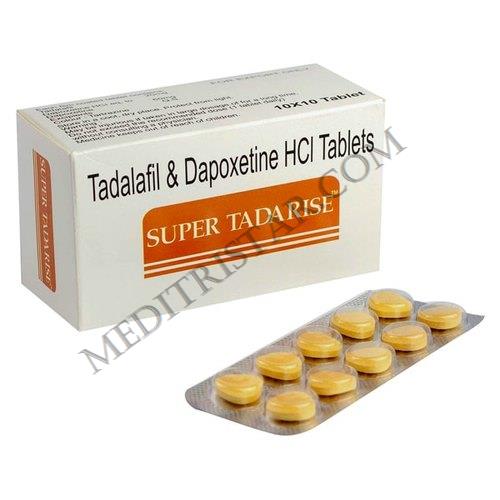


Erectile dysfunction (impotence) is the inability to get and keep an erection firm enough for sex. Having erection trouble from time to time isn’t necessarily a cause for concern. If erectile dysfunction is an ongoing issue, however, it can cause stress, affect your self-confidence and contribute to relationship problems. Problems getting or keeping an erection can also be a sign of an underlying health condition that needs treatment and a risk factor for heart disease. If you’re concerned about erectile dysfunction, talk to your doctor — even if you’re embarrassed. Sometimes, treating an underlying condition is enough to reverse erectile dysfunction. In other cases, medications or other direct treatments might be needed.
ORDER NOW
Shop By Brand


ED can result from health problems, emotional issues, or from both. Some known risk factors are:
- Being over age 50
- Having high blood sugar (Diabetes)
- Having high blood pressure
- Having cardiovascular disease
- Having high cholesterol
- Smoking
- Using drugs or drinking too much alcohol
- Being obese
- Lacking exercise
Even though ED becomes more common as men age, growing old is not always going to cause ED. Some men stay sexually functional into their 80s. ED can be an early sign of a more serious health problem. Finding and treating the reason for ED is a vital first step.
Physical Causes of ED
ED happens when:
- There is not enough blood flows into the penis
Many health issues can reduce blood flow into the penis, such as hardened arteries, heart disease, high blood sugar (Diabetes) and smoking. - The penis cannot trap blood during an erection
If blood does not stay in the penis, a man cannot keep an erection. This issue can happen at any age. - Nerve signals from the brain or spinal cord do not reach the penis
Certain diseases, injury or surgery in the pelvic area can harm nerves to the penis. - Diabetes can cause small vessel disease or nerve damage to the penis
- Cancer treatments near the pelvis can affect the penis’ functionality
Surgery and or radiation for cancers in the lower abdomen or pelvis can cause ED. Treating prostate, colon-rectal or bladder cancer often leaves men with ED. Cancer survivors should see a Urologist for sexual health concerns. - Drugs used to treat other health problems can negatively impact erections
Patients should talk about drug side effects with their primary care doctors.
Emotional Causes of ED
Normal sex needs the mind and body working together. Emotional or relationship problems can cause or worsen ED.
Some emotional issues that can cause ED are:
- Depression
- Anxiety
- Relationship conflicts
- Stress at home or work
- Stress from social, cultural or religious conflicts
- Worry about sex performance
The main symptom of premature ejaculation is the inability to delay ejaculation for more than one minute after penetration. However, the problem might occur in all sexual situations, even during masturbation.
Premature ejaculation can be classified as:
- Lifelong (primary).Lifelong premature ejaculation occurs all or nearly all of the time beginning with your first sexual encounters.
- Acquired (secondary).Acquired premature ejaculation develops after you’ve had previous sexual experiences without ejaculatory problems.
Many men feel that they have symptoms of premature ejaculation, but the symptoms don’t meet the diagnostic criteria for premature ejaculation. Instead these men might have natural variable premature ejaculation, which includes periods of rapid ejaculation as well as periods of normal ejaculation.
Erectile dysfunction (ED) is the inability to get or keep an erection firm enough to have sexual intercourse. Some people may assume ED increases with age. The fact is that the inability to maintain an erection isn’t always age-related. Aging doesn’t necessarily mean you’re destined to develop ED indefinitely. While age can raise the risk for ED, there are ways to treat it.
Finding the cause of your ED will help direct your treatment options. Diagnosing ED starts with your health care provider asking questions about your heart and vascular health and your erection problem. Your provider may also give you a physical exam, order lab tests or refer you to a Urologist.
Medications that have been developed to treat erectile dysfunction or impotency can be very effective for certain patients. Men who have mild or moderate erectile dysfunction often experience great results after using these medications. In general, approximately 70-80 percent of men will experience some benefit from using these medications. The most popular treatments for erectile dysfunction include oral medications that help increase blood flow to the penis resulting in a more rigid or longer-lasting erection. Some of them are as under: Spendra, Sildenafil , Avanafil , Tadalafil, Vardenafil, Siligra, Tadarise, Tadasoft etc.
Disclaimer: Meditristar sole intention is to ensure that its consumers get information that is expert-reviewed, accurate and trustworthy. However, the information contained herein should NOT be used as a substitute for the advice of a qualified physician. The information provided here is for informational purposes only. This may not cover all possible side effects, drug interactions or warnings or alerts. Please consult your doctor and discuss all your queries related to any disease or medicine. We intend to support, not replace, the doctor-patient relationship.








